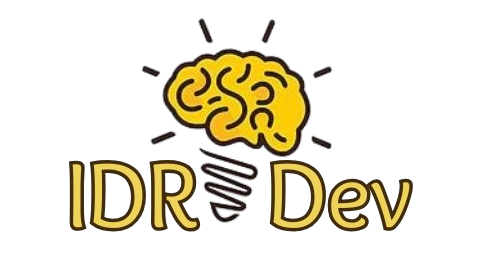Best Web Development Tools 2025: Your Ultimate Guide to Building Amazing Websites
The ever-evolving landscape of web development demands that developers stay ahead of the curve. Choosing the right tools is crucial for efficiency, scalability, and building exceptional user experiences. This comprehensive guide delves into the best web development tools expected to dominate in 2025, encompassing everything from versatile code editors to robust testing suites. We’ll explore the background of these tools, their significance, and how to effectively integrate them into your workflow. By the end, you’ll be equipped to confidently select the perfect toolkit for your next project.
The digital world is relentlessly innovative, and the tools we use to shape it must keep pace. This article aims to equip you with the knowledge to navigate this dynamic environment and make informed decisions about your technological arsenal. Whether you are a seasoned developer or just starting your journey, this guide will provide valuable insights into the future of web development tools.
Background: The Evolution of Web Development Tools

Web development has dramatically evolved since its inception. Early websites were static, primarily built with HTML and CSS. The emergence of JavaScript added interactivity, paving the way for dynamic and engaging web experiences. Today, we have a vast array of tools and technologies at our disposal, encompassing various programming languages, frameworks, and libraries. The trend is moving towards greater automation, AI-powered assistance, and improved developer experience. This necessitates a comprehensive understanding of the tools available to harness these advancements.
The Shift Towards Low-Code/No-Code Platforms
A significant shift is the growing popularity of low-code/no-code platforms. These platforms empower individuals with limited coding experience to create functional websites and applications. While they may not be suitable for all projects, they are proving incredibly valuable for rapid prototyping and simpler web solutions. This democratization of web development is changing the landscape and creating new opportunities.
Importance of Choosing the Right Web Development Tools

Selecting the appropriate tools is paramount for successful web development. The right tools enhance productivity, improve code quality, and streamline the development process. Using outdated or inappropriate tools can lead to inefficiencies, increased debugging time, and ultimately, compromised project outcomes. The choice of tools should be aligned with project requirements, team expertise, and future scalability needs.
Impact on Project Success and Team Productivity
The efficiency and productivity of a development team are directly influenced by the tools they utilize. A well-integrated toolset promotes collaboration, reduces errors, and allows developers to focus on creating innovative solutions rather than grappling with technical challenges. This translates directly to faster project completion and enhanced quality.
Benefits of Utilizing Cutting-Edge Web Development Tools

Adopting state-of-the-art web development tools offers several key benefits. Increased productivity is a primary advantage, allowing developers to complete tasks more efficiently. Enhanced code quality is another significant benefit, leading to more robust and maintainable applications. Improved collaboration, facilitated by integrated tools and platforms, fosters teamwork and accelerates the development process.
Boosting Collaboration and Enhancing Code Quality
Modern web development tools often incorporate features that promote collaboration, such as integrated version control systems and real-time code editing capabilities. They also include linters and static analyzers to ensure code quality and maintainability, reducing the likelihood of bugs and errors.
Steps to Selecting the Best Web Development Tools for 2025

Selecting the optimal web development tools requires careful consideration. Begin by clearly defining project requirements and scope. Then, identify the technologies and frameworks that best align with those requirements. Next, evaluate the tools available, focusing on features, community support, and ease of integration.
Thorough Research and Evaluation Process
A thorough research process is crucial. Explore various tools, read reviews, and consider trial periods before making a final decision. Consider factors like scalability, security, and long-term maintainability. The goal is to choose tools that will serve your needs for the foreseeable future.
Integration and Compatibility Considerations
Ensure that the selected tools are compatible with each other and your existing infrastructure. Seamless integration minimizes friction and maximizes productivity. Consider factors such as API integrations, database compatibility, and deployment workflows.
Examples of Top-Performing Web Development Tools for 2025

Several tools are poised to be leading contenders in 2025. For code editors, VS Code continues to be a popular choice, offering extensive customization and extensions. Frameworks like React, Angular, and Vue.js remain dominant for building user interfaces. Testing tools such as Jest and Cypress are essential for ensuring code quality. For backend development, Node.js and Python (with frameworks like Django and Flask) remain strong contenders.
Code Editors: VS Code, Sublime Text, Atom
VS Code’s popularity is fueled by its extensive extension library, providing support for virtually any language or framework. Sublime Text is known for its speed and lightweight design, while Atom, although less actively developed, still has a loyal user base.
Frameworks: React, Angular, Vue.js, Svelte
React, Angular, and Vue.js continue to dominate the frontend landscape, each with its own strengths and weaknesses. Svelte, a newer framework, is gaining traction with its compiler-based approach.
Backend Technologies: Node.js, Python, Go, Java
Node.js, with its non-blocking I/O model, remains popular for building scalable applications. Python’s versatility and extensive libraries make it a strong choice for various projects. Go is gaining traction for its speed and efficiency, and Java remains a mainstay in enterprise environments.
Strategies for Effective Tool Integration and Workflow Optimization

Effective tool integration is key to maximizing productivity. Start by establishing clear development workflows and processes. Use version control systems like Git to manage code changes effectively. Implement automated testing to catch bugs early in the development cycle. Regularly review and adapt your tooling strategy as needed to accommodate evolving project needs.
Version Control, Automated Testing, and Continuous Integration/Continuous Deployment (CI/CD)
Using a version control system like Git is essential for collaboration and managing code changes. Automated testing helps identify and fix bugs early. CI/CD pipelines automate the deployment process, enabling faster releases and smoother updates.
Challenges and Solutions in Web Development Tool Selection
Selecting the right tools is not without challenges. The sheer number of options available can be overwhelming. Keeping up with the latest trends and technologies requires continuous learning. Ensuring compatibility between different tools can be complex. Managing licensing costs and support agreements is another important consideration.
Keeping up with Evolving Technologies and Managing Complexity
The fast-paced nature of web development demands continuous learning and adaptation. Staying informed about the latest tools and technologies is crucial for staying competitive. Utilizing resources like online documentation, tutorials, and community forums can help manage the complexity.
Frequently Asked Questions
- What are the key factors to consider when choosing web development tools?
- Consider project requirements, team expertise, scalability, maintainability, security, and cost.
- How often should I review and update my web development tools?
- Regularly, ideally at least annually, or whenever project needs change significantly.
- What are some popular open-source web development tools?
- VS Code, Node.js, React, and many frameworks and libraries are open-source.
- How can I improve collaboration with my web development team?
- Use version control, communication tools, and shared development environments.
- What role does testing play in successful web development?
- Testing is crucial to identify and resolve bugs early, ensuring quality and stability.
Conclusion: Embracing the Future of Web Development
The world of web development is continuously evolving, and selecting the right tools is essential for success. By understanding the benefits, challenges, and strategies discussed in this article, you can make informed decisions to optimize your workflow and build exceptional web applications. Stay informed about emerging technologies and adapt your toolkit to stay ahead of the curve. Embrace the power of cutting-edge tools to unlock your full development potential.
Call to Action: Begin evaluating your current web development toolkit. Identify areas for improvement and explore the tools discussed in this article to enhance your productivity and build even better websites in 2025 and beyond.

